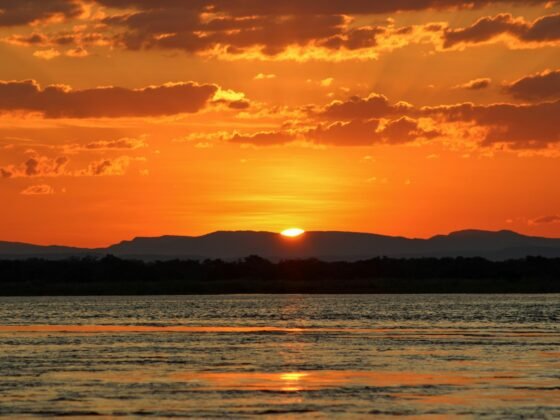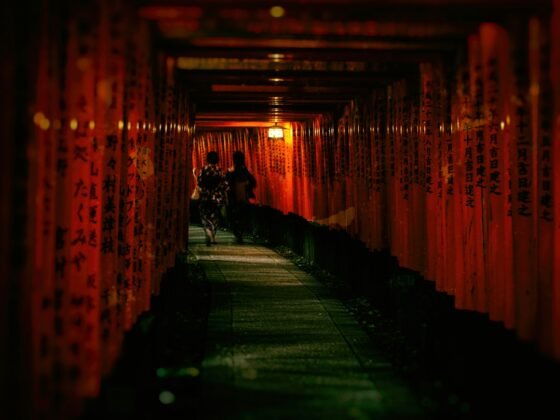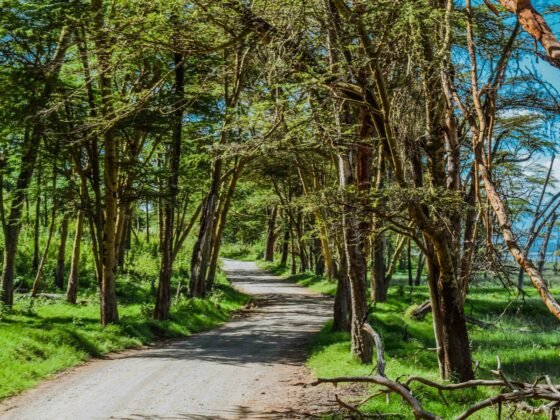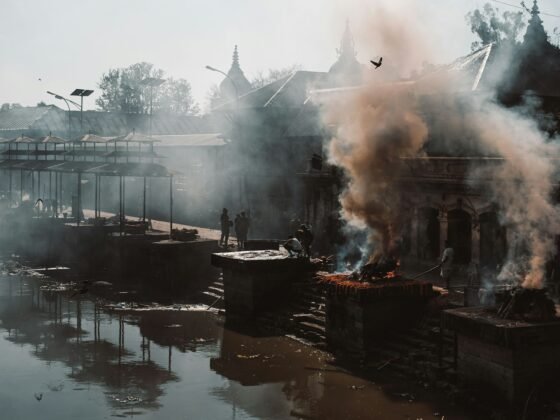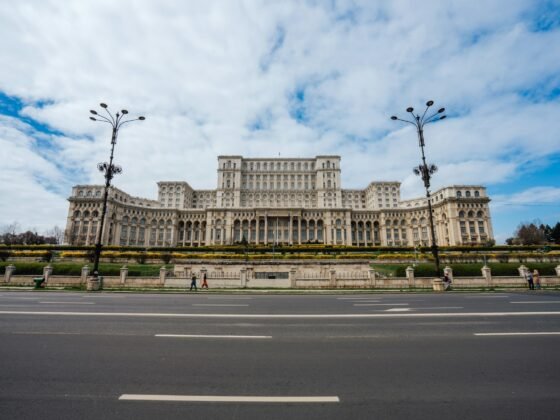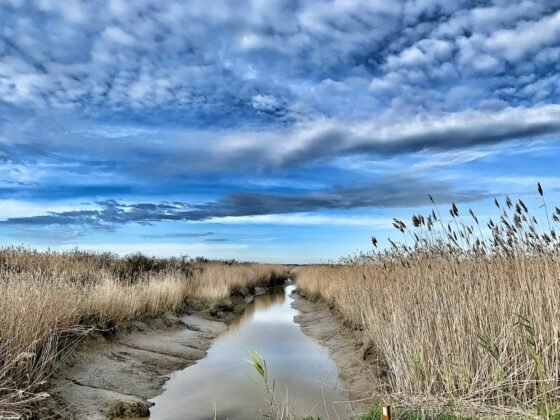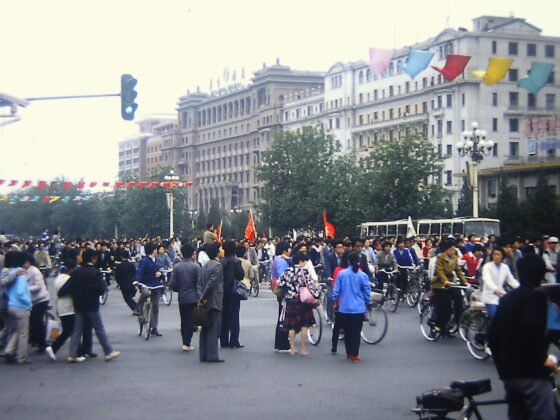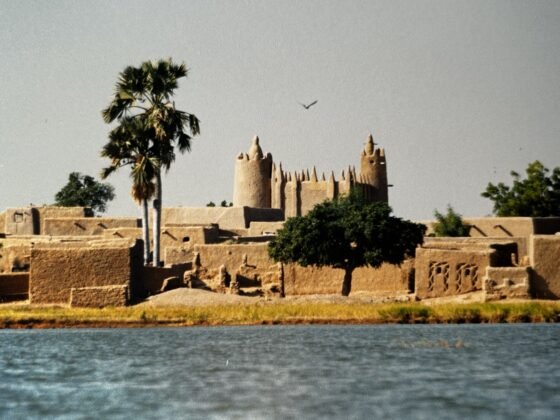By Georgie Turnbull
Runner-Up – PureTravel Writing Competition 2024
There was no tree that year, so nothing felt right. Dinner was takeaway shawarma,
junky and delicious in greaseproof paper, dotted with salty slivers of french fries, but
even so I could not forgive it for being so wholly wrong.
I had spent the days prior face down by the pool, the spines of half-read books
slowly melting on the hot tiles, a solitary figure in a near-empty expat complex.
Sometimes I turned to watch the occasional planes pass so close overhead I could
almost count the rivets on their silvery underbellies as they broke the static silence of
the heat which lay like a blanket over everything.
On Boxing Day I climbed sulkily into the back of my parent’s over-large jeep, the sort
everyone drove here as oil was cheap and plentiful and they needed ways to burn it.
I was, as usual, instantly sticky and irked by the voluminous folds of my cheap nylon
abaya.
We drove south along the Red Sea coast, the port town of Yanbu al Bahr receding
into the flat featureless horizon behind us. The roads here were rough, barely raised
above the sand that blurred their edges in fine powdery waves. At junctions, of which
there were few, the burnt out carcasses of cars which had failed to navigate them
were piled like modern art exhibits. The odd dusty pickup would appear from
nowhere to overtake, the drivers leaning on their horns and veering wildly whilst their
camels sat serenely riding pillion in their flatbeds.
I was already bored of the scenery, the vast nothingness of the desert, the sides of
the road scattered carelessly with litter flung from the windows of previous passers-
through. The romance that T.E.Lawrence had found here seemed long since erased
by sprawling petrochemical refineries and towering mirrored edifices glinting against
the hot bleached skies. I longed for the damp familiarity of England.
Soon we headed inland past the outskirts of Medina, ushered away from whatever
luminous treasures it held at its centre by uncompromising signs directing non-
Muslims in a long detour past vast tarmacked pilgrimage camps.
Onwards we drove, this time north, a hundred more monotonous miles and then,
unexpectedly, my father slowed to a stop in the unrelenting desert moonscape, the
only landmark a long since wrecked car sinking slowly into the shifting sands to our
left. Consulting a small hand drawn approximation of a map with a small nod of
satisfaction he swung the car decisively into the no man’s land.
A ghost road emerged from the pale sands beneath our tyres and the desert turned
black and rocky as we traversed the ancient lava flows of Harrat al-Khaybar heading
towards the disused Sadd al-Bint dam. Clambering down to the base of its
monumental walls, we joined a caravan of Bedouin camels under the canopy of the
acacias at its foot. A faint butterfly of excitement fluttered under my ribs, joining the
low percussive clicks of the scarabs.
Back on the road once more we followed the dislocated spine of the Hejaz Railway
towards Al Ula. Its rails and sleepers had long since been requisitioned and all that
now remained were a handful of forts and stations scattered along its length like the
beads of a broken necklace.
Swerving softly down into the sand we headed towards one such station, Abu
Na’am, its small barrack block and water tower riddled with bullet holes from an
attack led by Lawrence. Again, that feeling under my ribs. There was something
strange and wonderful in the absolute silence of the desert.
As we made our way back to the car our footsteps had already disappeared in the
low, growing wind of an imminent sandstorm and, bumping back onto the Al Ula
road, we were engulfed in a milky soup of sand. We drove slowly as the road ebbed
and flowed beneath us and disorientated camels stumbled out of the temporary
gloaming.
Outside Mada’in Salih, the skies clear and near-white once more, the road narrowed
between rock faces, strange hieroglyphs briefly visible from our dusty windows.
At the hotel we were the only foreigners and were greeted with a bemused
hospitality. They had no time for history, drawn as they were like magpies to the
shiny novelty of the new that the rich vein of oil coursing through their lands now
afforded them.
The next day the three of us stood alone amongst the monoliths of Hegra. The sand
here glowed red and when the desert winds blew you could hear a far-off and
ghostly keening, said to be the cries of a she-camel slaughtered centuries earlier by
the cursed and idolatrous Thamuds of pre-Islamic Arabia.
There was something eerie and otherworldly about the immense sandstone
outcrops, their faces hewn flat and carved into tombs by long-dead Nabataen hands
two millennia ago. I scrambled on hands and knees to find a vantage point and
stared across the Martian landscape. I felt small and mighty and terrified and brave.
On my last visit home my Dad disappeared and returned excitedly with a small
plastic album of photos from that Christmas so many years ago. There’s a shot of my
Mum beaming beside him on an empty desert road, an explorer’s grin spread across
his face. There’s one of me, cross legged and assuming a lotus position on a high
carved ledge. I am young and happy and I’m smiling too. There was no tree that
year, and nothing felt right. And it was strange. And it was wonderful.
Judge’s comments: From its eyecatching start to its poignant and very obvious full-stop, this is a really poetic, engaging, thoughtful read. Georgie isn’t just telling a tale – they’re telling it in a way that draws the reader in. There are so many lovely vivid details – the spines of half-read books melting on the hot tiles; the dislocated spine of the Hejaz Railway…like beads of a broken necklace – dragging the reader right into the Jeep beside Georgie as the family rattles across the desert. I love the quiet emotion of the ending – “…nothing felt right. And it was strange. And it was wonderful.” – all the more powerful for the simplicity and spareness of the language. If I could have given two 1st places, this would have been a joint winner.
Photo by tahir khan on Unsplash




